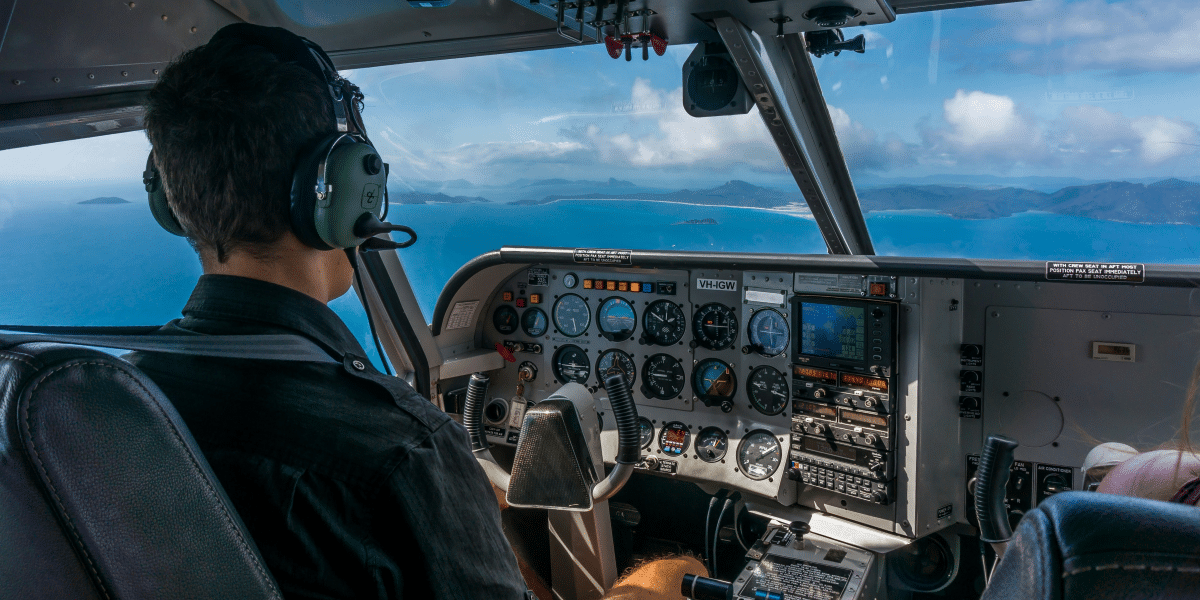Image commercially licensed from Unsplash
Air travel, one of humankind’s most astonishing achievements, has been an arena of constant evolution. From the days of the Wright brothers to our present era of supersonic jets, the journey has been about pushing boundaries and expanding horizons. Today, with the influx of Machine Learning (ML) in aviation education, we stand on the cusp of another transformational leap.
A Modern Overhaul
The traditional flight training methodology, while effective, has often been one-size-fits-all. With its data-driven approach, Machine Learning offers the possibility of customizing training modules to the individual pilot, acknowledging that each trainee has unique strengths, weaknesses, and learning curves.
Adaptive Training Modules
Harnessing ML, training systems can now track a student’s performance in real-time and adjust scenarios or modules accordingly. If a student struggles with landing techniques under specific conditions, the system can generate more scenarios until proficiency is achieved.
Integrating Machine Learning in flight training heralds a new era of adaptability and responsiveness. Traditional training methods often follow a rigid curriculum, regardless of individual student needs. With the advent of ML-driven adaptive training modules, the aviation industry can now tailor instruction to each trainee’s specific strengths and weaknesses.
These systems can dynamically adjust scenarios and modules by continuously monitoring a student’s performance in real time. If a student encounters difficulty with landing techniques in specific weather conditions, the ML system can generate additional training scenarios targeting these challenges. This personalized approach ensures that pilots can progress at their own pace, ultimately leading to more confident and proficient aviators.
Performance Analysis and Feedback
The true potential of ML shines when it comes to analyzing trainee data. By sifting through countless hours of training sessions, ML can identify patterns and areas of improvement and even predict which trainees might face challenges in certain regions.
Machine Learning’s transformative power truly shines in its ability to dissect and comprehend vast amounts of trainee data. In the realm of flight training, ML algorithms can meticulously examine countless hours of training sessions, unearthing patterns and insights that were previously elusive. By harnessing these patterns, flight instructors can gain a deeper understanding of their student’s progress and areas for improvement.
Furthermore, ML can predict which trainees may encounter challenges in specific aspects of their training, enabling proactive interventions. This data-driven feedback loop empowers instructors and trainees with invaluable information, enhancing the overall effectiveness of flight training programs and cultivating a generation of safer and more skilled pilots.
Enhanced Safety Through Simulation
Safety remains paramount in flight training. With ML-powered simulators, trainees can be exposed to various challenging situations in a controlled environment. These simulators can replicate rare but critical events, ensuring pilots are prepared.
Safety has always been paramount in aviation, and Machine Learning is revolutionizing how security is integrated into flight training. ML-powered simulators offer an unparalleled advantage by exposing trainees to various challenging and high-stress situations within a controlled environment. These simulators can accurately replicate rare but critical events, ensuring that pilots are well-prepared to handle any unforeseen circumstances in the real world.
By simulating scenarios such as engine failures, severe weather conditions, or emergency landings, trainees can develop the necessary skills and confidence to respond effectively to crises. Machine Learning is thus pivotal in elevating aviation safety standards and equipping pilots with the expertise to navigate the skies with confidence and competence.
Barry Oberholzer states, “Machine Learning is more than just a tool; it’s a paradigm shift in how we approach flight training. It brings a level of personalization and efficiency that we could only dream of a decade ago.”
Reduced Training Time
One of the significant advantages of ML is the potential reduction in the time it takes to train a proficient pilot. By focusing on areas that need improvement and skipping modules where the trainee is already talented, the training period can be significantly reduced without compromising on the quality of training.
ML algorithms can analyze a trainee’s performance and tailor training modules to focus on weak areas, ensuring efficient use of training time. Unlike traditional training methods, ML-driven systems can recognize unique learner traits and automatically adapt the training curriculum, providing a more personalized learning experience.
ML enables the creation of more realistic and complex training simulations, which helps pilots practice handling a variety of challenging situations in a controlled environment. By analyzing data from previous trainee performances, ML can predict potential areas where future pilots may struggle, allowing for the proactive adjustment of training programs. The integration of ML into aviation training programs promises not only to maintain but in many instances to enhance the quality of training pilots receive, ensuring that they are well-prepared to manage the challenges of modern aviation.
Future Outlook
As Machine Learning algorithms become more sophisticated, the possibilities in flight training are limitless. We can envision a future where every pilot’s training journey is uniquely crafted, maximizing their potential and ensuring safer skies.
Oberholzer reflects, “We are merely scratching the surface of what ML can bring to aviation education. Its full potential, when harnessed correctly, could redefine the very essence of flight training.”
The fusion of Machine Learning with flight training signifies a new era in aviation education. As we harness the capabilities of ML to offer personalized training experiences, we not only ensure that our pilots are better equipped but also pave the way for a future where every pilot’s training journey is as unique as their fingerprint.
About Barry Oberholzer
Barry Oberholzer is a helicopter pilot, businessman, and author. He was also a professional rugby player and attended the University of South Africa as well as the American Military University. He is a tech entrepreneur and specialist who has worked in aviation for many years in South Africa and the United States. He has worked for Base4 Aviation and more recently JETT. Born in Texas, USA, Oberholzer spent much of his formative years in South Africa.

















